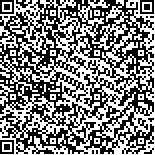| 引用本文: | 王发明, 李洁维, 胡亚康, 莫权辉, 蒋桥生, 龚弘娟, 叶开玉, 刘平平.猕猴桃属十个种的染色体倍性鉴定[J].广西植物,2018,38(2):220-224.[点击复制] |
| WANG Faming, LI Jiewei, HU Yakang, MO Quanhui, JIANG Qiaosheng,
GONG Hongjuan, YE Kaiyu, LIU Pingping.Chromosome ploidy of ten species in genus Actinidia[J].Guihaia,2018,38(2):220-224.[点击复制] |
|
| |
|
|
| 本文已被:浏览 8332次 下载 3874次 |

码上扫一扫! |
|
|
| 猕猴桃属十个种的染色体倍性鉴定 |
|
王发明, 李洁维*, 胡亚康, 莫权辉, 蒋桥生, 龚弘娟, 叶开玉, 刘平平
|
|
广西喀斯特植物保育与恢复生态学重点实验室, 广西壮族自治区
中国科学院 广西植物研究所, 广西 桂林 541006
|
|
| 摘要: |
| 猕猴桃属(Actinidia)植物全世界有66种,约有118个种下分类单位(也有新的划分方法将其划分为54种21变种),其中大部分为中国特有。在猕猴桃杂交育种中,不同倍性之间选配不当会出现杂交失败、后代不育等现象,因此倍性鉴定是猕猴桃常规育种亲本选择的前提条件之一。但到目前为止,不少猕猴桃种或亚种的染色体倍性研究并不十分清楚,因而限制了这些资源的进一步开发利用。该研究针对广西植物研究所猕猴桃种质资源圃收集的目前倍性尚不明确的白萼、白花柱果、二色花、临桂、卵圆叶、桃花、宛田、长果、融水和五瓣猕猴桃等10个种类的猕猴桃,使用酸解法制备染色体标本,通过显微镜观察确定其倍性。这10个种类大多为广西特有,其中蕴藏着独特的优良园艺性状,具有很高的生产和开发价值。该研究结果表明这10个种类猕猴桃的染色体倍性均为二倍体(2n=2x=58)。该研究结果进一步丰富了猕猴桃种质资源多样性数据库,为这些猕猴桃资源的合理开发利用奠定了基础。 |
| 关键词: 猕猴桃属, 倍性, 酸解法, 溃疡病抗性, 广西特有 |
| DOI:10.11931/guihaia.gxzw201704008 |
| 分类号:Q944 |
| 文章编号:1000-3142(2018)02-0220-05 |
| 基金项目:国家自然科学基金地区科学基金(31560509); 中国科学院“西部之光青年学者”项目(A类); 广西自然科学基金(2015GXNSFBA139073,2015jjAA30059); 广西植物研究所基本业务费项目(桂植业15002); 广西科技创新能力与条件建设计划项目(桂科能14123006-36)[Supported by the Fund for Less Developed Regions of the National Natural Science Foundation of China(31560509); Young Scholar of CAS “Light of West China” Program(Category A Projects); Natural Science Foundation of Guangxi(2015GXNSFBA139073, 2015jjAA30059); Fundamental Research Fund of GXIB(15002); Construction Plans on the Innovation Ability and Foundation of Science and Technology(14123006-36)]。 |
|
| Chromosome ploidy of ten species in genus Actinidia |
|
WANG Faming, LI Jiewei*, HU Yakang, MO Quanhui, JIANG Qiaosheng,
GONG Hongjuan, YE Kaiyu, LIU Pingping
|
|
Guangxi Key Laboratory of Plant Conservation and Restoration Ecology in Karst Terrain, Guangxi Institute of Botany,
Guangxi Zhuang Autonomous Region and Chinese Academy of Sciences, Guilin 541006, Guangxi, China
Guangxi Key Laboratory of Plant Conservation and Restoration Ecology in Karst Terrain, Guangxi Institute of Botany,
Guangxi Zhuang Autonomous Region and Chinese Academy of Sciences, Guilin 541006, Guangxi, China
|
| Abstract: |
| The genus Actinidia contains more than 66 species and 118 taxa(In the latest revision of the genus, all of them were classified as 54 species and 21 varieties), and most of them were Chinese endemic. As we know, inappropriate mating between parents with different ploidies usually result in crossbreeding failing or offspring-infertility in kiwifruit crossbreeding, so ploidy test would be one of the prerequisites for selecting crossing parents. But so far the chromosome ploidy of quite a number of species in actinidia has been poorly understood, which limits further development and utilization of these resources. In this study, ten ploidy-unknown species of Actinidia: A. albicalyx, A. cylindrica, A. diversicolora, A. linguiensis, A. indochinensis Merr. var. ovatifolia, A. persicina, A. wantianensis, A. longicarpa, A. rongshuiensis and A. pentapetala were studied for their chromosome ploidy with acid hydrolysis method, as most of the ten species are Guangxi endemic harboring unique and excellent horticultural traits and possess great production and development value. The results showed that all of the ten species were diploid(2n=2x=58). The findings expand the genetic diversity database of Actinidia and provide information for the further rational development and utilization of these resources. |
| Key words: Actinidia, ploidy, acid hydrolysis method, resistance to bacterial canker, Guangxi endemic |
|
|
|
|
|